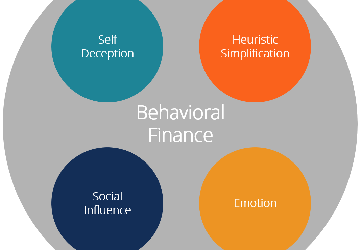How to Start Your Investment Portfolio Today
Financing may seem complicated, but it's very crucial for the future of your money. In the modern world, owning your financial assets is essential. Building an asset is not limited to wealthy individuals or financial experts; everyone can begin the process immediately.

This article will explain the importance of owning your financial assets, clarify certain myths, and provide some initial guidance. Understanding how to build and manage your stocks is crucial, regardless of whether you are saving for your retirement age, a new house, or simply attempting to increase your money. So, if you want to learn more, you are at the right place. Continue reading!
Step-by-Step Guide to Creating the Financial Assets
Research and planning are essential when constructing a financial plan. The appropriate strategy can optimize profits on your financial assets and reduce risk. With this information, you can make well-informed decisions and design a successful economic strategy that fits your needs. Saving for the future is a significant and fulfilling decision.
Establish Financial Objectives
Establishing financial objectives is a vital step toward reaching your ideal level of economic independence. It's similar to planning your destination before you leave on a trip. Before establishing any goals, determine how much you make and spend each month; this enables you to identify areas for cost savings.
Next, determine the amount you can set aside for stocks and savings. Consider your financial goals, such as retirement savings or purchasing a home. Ensure that your objectives are clear, quantifiable, achievable, relevant, and have a deadline. Remember that your objectives could vary as time passes, so reviewing and modifying them is critical. By establishing specific financial goals, you can take action to achieve the financial stability you desire.
Determine the Amount You Want to Spend
Determining the appropriate amount of money to invest requires careful consideration. By considering your financial goals, you can calculate how much you need to save to meet them.
Be realistic about the amount you may put away and consider how much you save each month. It would help if you also accounted for any expenses related to spending, such as taxes and fees. Once you've decided the amount you can contribute, setting a deadline for reaching your financial objectives is necessary.
Set Your Deadline
Now that you know precisely the amount you want to spend, it's time to decide on your timeline; this is essential since it guarantees that you have realistic expectations and aids in future planning. Your time frame should consider your financial objectives and your ability to commit.
Your timeline choice will also help you comprehend the risks related to your assets. For instance, assets with shorter durations are sometimes riskier, so you need to modify your schedule appropriately. On the other hand, if your goal is something more distant, like retirement, you might need to exercise more patience and adopt more extended financing.
Comprehend the Types of Assets
Understanding the various kinds of stocks is necessary for making successful savings. Understanding the many spending categories is critical to assembling a diverse collection. Knowing the disparities in risk and return attributes among diverse categories of stocks is imperative for making well-informed decisions.
The principal categories encompass real estate, monetary trading arena funds, equities, and bonds. A form of financial instrument denoting a fractional interest in a business is a stock. Bonds epitomize financial securities representing a loan from a creditor to a debtor, typically a corporation or governmental entity.
Examine Current Stock Market Trends
Given your defined financial objectives, analyzing patterns in the equity market is now essential. Understanding the dynamics of equities facilitates a deeper understanding of its intricacies and the impacts of events on various securities. While the endeavour may pose challenges, unravelling patterns remains within reach.

Embarking on this journey could entail acquainting oneself with the diverse array of securities available on the exchange and discerning their respective performances within the broader financial landscape. Such insights prove invaluable in identifying potentially lucrative assets while sidestepping excessively risky propositions.
Employing an array of tools and platforms enables you to monitor shifts in the assets arena effectively. These resources furnish invaluable assistance in gauging volatility, pinpointing emerging patterns, and formulating judicious financial strategies.
Open a Brokerage Account
The first step in assembling your financial plan is to open a brokerage account. Begin by investigating different brokerage firms to compare features like expenses, account minimums, client service, and user experience. Select a trustworthy brokerage with a solid reputation for reliability and safety.
After choosing a brokerage, obtain the necessary paperwork, such as your address, social security number, and proof of employment, and fill out the brokerage's account application. Lastly, transfer the first necessary sum into your account to begin earning.
Maintain Financial Objective
It's imperative to vigilantly monitor the assets in your possession once you've settled on your strategy. One of the paramount actions you can undertake to safeguard the stability of your funds is to engage in stock rebalancing. This practice diminishes the probability of losses and aids in maintaining optimal asset allocation. Realigning your holdings mitigates the risk of overconcentration in a particular industry or asset class amidst market fluctuations.
Stay Updated About Market Fluctuations
It's crucial to monitor market conditions after deciding with your money. Recognize the variety of options and be prepared to adjust your strategy as necessary. Observe any news about the economy, the shares market, and your assets. Understand that external factors may impact your assets as well. By monitoring the market and your investments, you may make modifications to keep your financial resources safe and moving toward your goals.
Conclusion
Financing is easier than it seems and is essential for safeguarding financial stability. You can begin trading by evaluating your finances, establishing specific goals, and becoming knowledgeable about the many kinds of assets. Observe the market and modify your plan of action as necessary. Implementing these measures can enhance your financial standing and ensure a more promising future.





